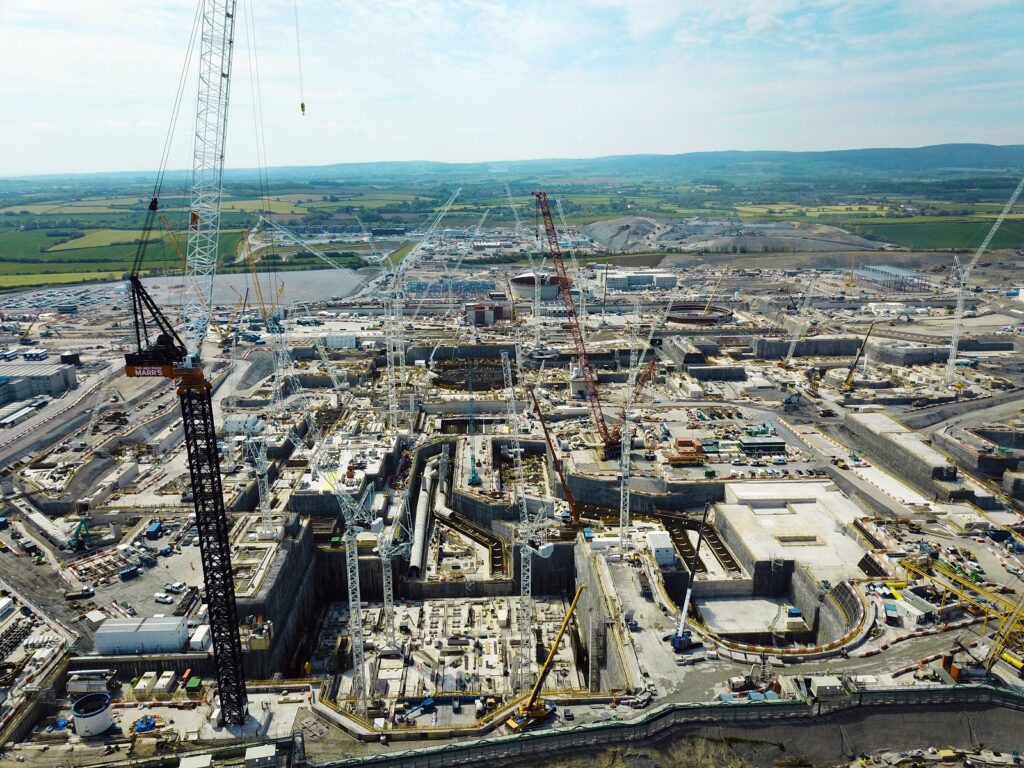EDF Energy, a UK subsidiary of French state-owned energy company EDF, has announced an updated completion cost for the Hinkley Point C coming in at £43 billion.
The energy supplier released a general update regarding the project, highlighting recent milestones such as the dome for Unit 1 being lifted and installed on December 15 and the delivery of 70% of materials required for Unit 1 construction.
The company went on to explain that, in May 2022, Hinkley Point C was estimated to be completed in 2027 at a cost of £25 to £26 million in 2015 values.
Now, however, the estimated date of completion has been pushed by at least three years to 2029 at the earliest and 2031 at the latest, along with up to £10 billion of additional costs.
Therefore, once the inflation rate from 2015 to 2024 is taken into account, the updated cost is now estimated at £43 billion in today’s values.
EDF Energy attributes the rising costs to civil engineering and the longer duration of the electromechanical phase, as well as the impact of this duration on other work.
If the additional delay to a 2031 completion date materialises, there would be an extra cost of roughly £1 billion in 2015 values and £1.3 billion in today’s values.
In a video released by EDF Energy the managing director of Hinkley Point C, Stuart Crooks, highlighted the significant obstacles the project has come up against in regards to British regulations.
There were 7,000 substantial design changes required by specific British regulations that were made to the site, with 35% more steel and 25% more concrete needed than originally planned.
The company also confirmed that the entirety of the increased costs would be met by shareholders, and will therefore not affect the British taxpayer.
Footing the bill
Within the last month alone there have been several financial commitments made to nuclear energy projects developed by EDF Energy.
The energy supplier currently manages eight nuclear power stations, five of which are generating and three that are refuelling, across which 37.3TWh was generated in 2023.
A station based in Suffolk, known as Sizewell B, has so far generated over 250TWh in its 29 years of operation and is currently providing 13% of the UK’s nuclear power consumption.
EDF Energy itself has recently contributed, announcing a £1.3 billion investment to maintain and expand the UK’s 2023 nuclear output, which has thus far superseded expectations.
The firm’s UK nuclear power stations have generated over 35% more electricity than initially forecast at the time of acquisition, with the extra output coming in at 212TWh.
Despite the energy supplier’s evident commitment, the UK government remains a clear frontrunner in providing funding packages for the various nuclear energy production projects.
On 11 January, the government announced its largest nuclear expansion in 70 years guided by the Civil Nuclear Roadmap, which includes exploring building a major new power station and investing in advanced nuclear fuel production.
With nuclear energy becoming a flagship solution to the UK’s reliance on Russia for fuel production, projects like Sizewell C and Hinkley Point C are increasingly valuable for the government’s goal of 24GW nuclear power production by 2050.
This helps to explain the most recent investment of £1.3 billion from the UK government for Sizewell C specifically, marking the largest government funding package today and nearly doubling all previous installments combined.





